Heatmap Softwares
Digital marketers and designers can use heatmap software to understand user behavior on their websites, and improve site usability, engagement, and conversion rates.Â
Heatmap tools are essential for understanding user behavior and improving website usability. They can also be used to optimize conversion rates and engagement. Choosing the right heatmap tool is essential for success in digital marketing and design.
Check out these 10 best heatmap tools, each sorted by features, benefits, pros, and cons, followed by a quick comparison table and recommendations.
1. Hotjar

10 Best Heatmap Tools For 2025 to Optimize Your Store
There’s no doubt that Hotjar is the most popular because of its ease of use. For marketers who want insight into their users, it has heatmaps, session recordings, and feedback tools.
Positives:
Beginners will love it
Recordings, heatmaps, and surveys all in one place
It’s desktop and mobile friendly
There’s a free basic plan
Negatives:
Free plan doesn’t have all the features
Site performance can be slowed
There are only a few customization options
There’s a limit on data storage on lower tiers
2. Crazy Egg
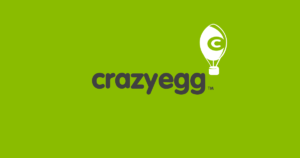
10 Best Heatmap Tools For 2025 to Optimize Your Store
You can create heatmaps, scroll maps, and use A/B testing with Crazy Egg. You can see individual clicks on a granular level with its confetti tool. Crazy Egg also offers personalization features, allowing you to customize the look of your website to match your brand. It also offers analytics and reporting features to help you better understand your website’s performance.
Benefits:
With the Confetti Tool, you can get detailed click insights
An A/B test is included for optimisation
The interface is simple and user-friendly
Heatmaps work on all devices
Negatives:
The integrations are limited
Users don’t record their sessions
It’s too expensive for small businesses
Keeping track of dynamic content is limited
3. Mouseflow
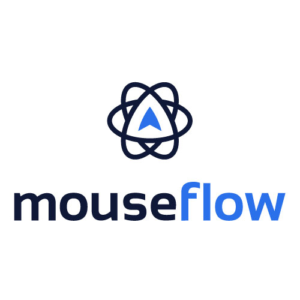
10 Best Heatmap Tools For 2025 to Optimize Your Store
Among Mouseflow’s best features is its session replay, which traces the entire user journey along with heatmaps. For tracking detailed user behavior, it’s perfect. It allows users to view where users clicked, scrolled, and hovered. It also provides users with valuable insights into user behavior.
Positives:
Deep insights with detailed session replays
Segmentation for advanced users
Keeping track of form interactions
Analyze conversion funnels
Negatives:
Only limited reporting
A lot of money for small businesses
The interface can be a little confusing for beginners
It doesn’t have A/B testing
4. Smartlook
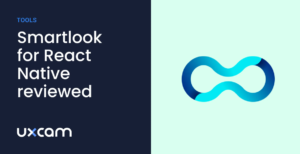
10 Best Heatmap Tools For 2025 to Optimize Your Store
It’s great for eCommerce sites that need conversion analysis because it has heatmaps, user session recordings, funnel tracking, and analytics. These features allow businesses to identify problems with their user experience and make changes to improve it. This helps to increase conversions and sales.
Positives:
Recorded sessions and heatmaps
Here’s what visitors are doing in real time
Analyze mobile apps with this
Track conversions with funnel visualisation
Negatives:
The basic plan doesn’t have any advanced features
Beginners might struggle with the interface
It takes a while to generate reports
Heatmap customization limited
5. FullStory

10 Best Heatmap Tools For 2025 to Optimize Your Store
With FullStory, you can see more on user behavior than just heatmaps. It’s perfect for enterprises that need a lot of data on user behavior. FullStory also provides a lot of other useful data, such as session recordings and user journeys. It’s a great choice for businesses that need a comprehensive view of user behavior.
Positives:
Heatmaps and session replays with comprehensive analytics
Integrations that are strong
Using AI to understand user behavior
Analyzing the whole company
Negatives:
For small businesses, it’s expensive
There’s a steep learning curve because there’s so much to learn
You might have to pay extra if you want to store more data
Options for A/B testing are limited
6. Plerdy
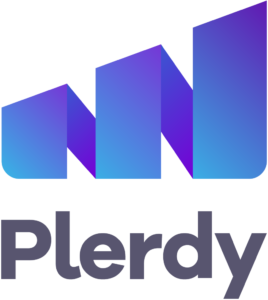
10 Best Heatmap Tools For 2025 to Optimize Your Store
Plerdy has heatmaps and conversion tools specifically for SEO and CRO, so it’s great for organic traffic marketers.
Positives:
Tools for SEO and heatmaps
A lightweight setup that doesn’t slow down your site
Without reloading the page
It’s good for eCommerce and content sites
Negatives:
Reports can only be customized so much
The interface can feel outdated
There’s no guarantee when customer support will respond
Advanced analytics are limited
7. Lucky Orange
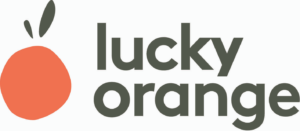
10 Best Heatmap Tools For 2025 to Optimize Your Store
For small businesses and startups, Lucky Orange has heatmaps, recordings, and live chat, perfect for optimizing user experience. Lucky Orange helps businesses understand user behavior, measure conversions, and optimize websites. It’s also easy to use and you don’t have to know any code.
Positives:
Has live chat so you can talk in real time
It’s affordable for startups
You can track everything, see heatmaps, and analyze forms
The higher the plan, the more recording you get
Negatives:
There are some sites that take a long time to load
Limitations on deep segmentation
You’ll need to upgrade some features
Large companies shouldn’t use this
8. Clicktale (now part of Contentsquare)

10 Best Heatmap Tools For 2025 to Optimize Your Store
The Clicktale heatmaps and behavioral analytics, including journey mapping, are perfect for companies that need to understand user experience in depth. These insights can help identify areas of friction, as well as highlight opportunities for optimization. They can also help companies understand user behavior and create meaningful marketing campaigns.
Positives:
Map your journey and get insights into your behavior
Secure data at enterprise level
Large organisations get a lot of customisation
Integrate everything
Negatives:
It’s too expensive for small businesses
Setup and training are important
Testing A/B on a limited scale
Newbies will have trouble with the interface
9. Inspectlet

Inspectlet
Inspectlet is known for session recordings and is perfect for small business that want basic heatmap functionality along with in-depth session insights.
Positives:
Affordable for small and medium business
Detailed session recording features
Has heatmaps and scroll maps
Minimal site speed impact
Negatives:
Limited advanced analytics
Can be tricky to set up tracking goals
Interface can feel old
Limited heatmap customisation
10. Zoho PageSense
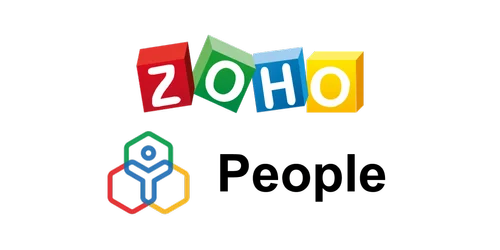
10 Best Heatmap Tools For 2025 to Optimize Your Store
Zoho PageSense has heatmaps, A/B testing and form analytics, perfect for businesses already in the Zoho ecosystem.
Positives:
Integrates with other Zoho products
Has A/B testing and form analytics
Good for small to medium business
Easy setup and interface
Negatives:
Limited features outside of Zoho ecosystem
Can be expensive as part of a suite
Less advanced behavioural analysis tools
Basic tracking customisation
Summary Table
| Tool | Features | Pros | Cons |
| Hotjar | Heatmaps, recordings, surveys | User-friendly, mobile tracking, free plan available, multi-functionality | Limited free plan, site performance issues, limited customizations, data limits |
| Crazy Egg | Heatmaps, A/B testing, confetti tool | Granular insights, A/B testing, user-friendly, multi-device heatmaps | Limited integrations, lacks session replays, higher cost, limited for dynamic content |
| Mouseflow | Heatmaps, session replays, funnel tracking | Session replays, segmentation, form tracking, funnel analysis | Limited reports, higher cost, complex UI, lacks A/B testing |
| Smartlook | Heatmaps, session replays, funnel tracking | Real-time insights, mobile app analytics, funnel visualization, conversion tracking | Limited basic plan, UI complexity, slow report generation, limited customization |
| FullStory | Heatmaps, session replays, analytics | AI-driven insights, enterprise integration, comprehensive features | High cost, steep learning curve, limited data storage, limited A/B testing |
| Plerdy | Heatmaps, SEO/CRO tools | SEO tools, lightweight setup, real-time updates, ideal for content sites | Limited reporting, outdated UI, inconsistent support, limited advanced analytics |
| Lucky Orange | Heatmaps, recordings, live chat | Affordable, live chat feature, variety of tracking options, unlimited recording | Slower site load, limited segmentation, feature-restricted plans, not ideal for large |
| Clicktale | Heatmaps, journey mapping, behavior insights | Enterprise-grade, secure, customizable, deep integration | Expensive, complex setup, limited A/B testing, steep learning curve |
| Inspectlet | Heatmaps, session recordings | Affordable, detailed recordings, multi-map capabilities, minimal site impact | Limited analytics, complex goal setup, outdated interface, limited customization |
| Zoho PageSense | Heatmaps, A/B testing, form analytics | Integrates with Zoho, A/B and form analytics, user-friendly | Limited outside Zoho, cost within suite, limited behavior tools, basic customization |
Conclusion
Small business and startups might find Lucky Orange and Inspectlet affordable and easy to use.
Medium business might find Hotjar and Smartlook balanced features for affordable price.
Large enterprise with big needs should consider FullStory and Clicktale for in-depth analytics, deep integration and customisation.
Each tool has its unique insights so choose based on your specific needs, such as session recording, A/B testing or SEO tools to get the most out of the tool for your business goals.


